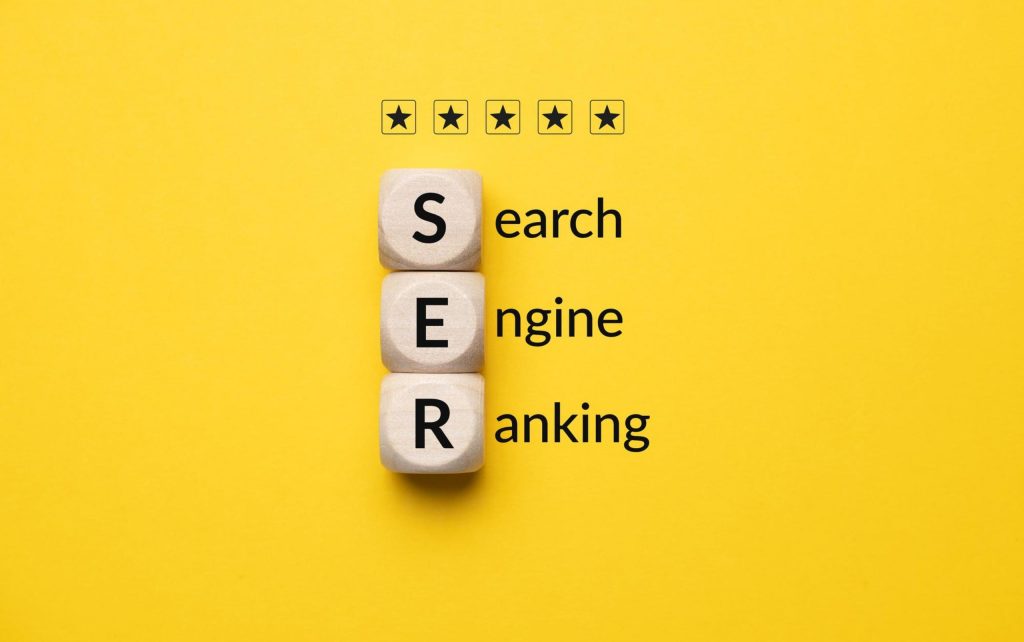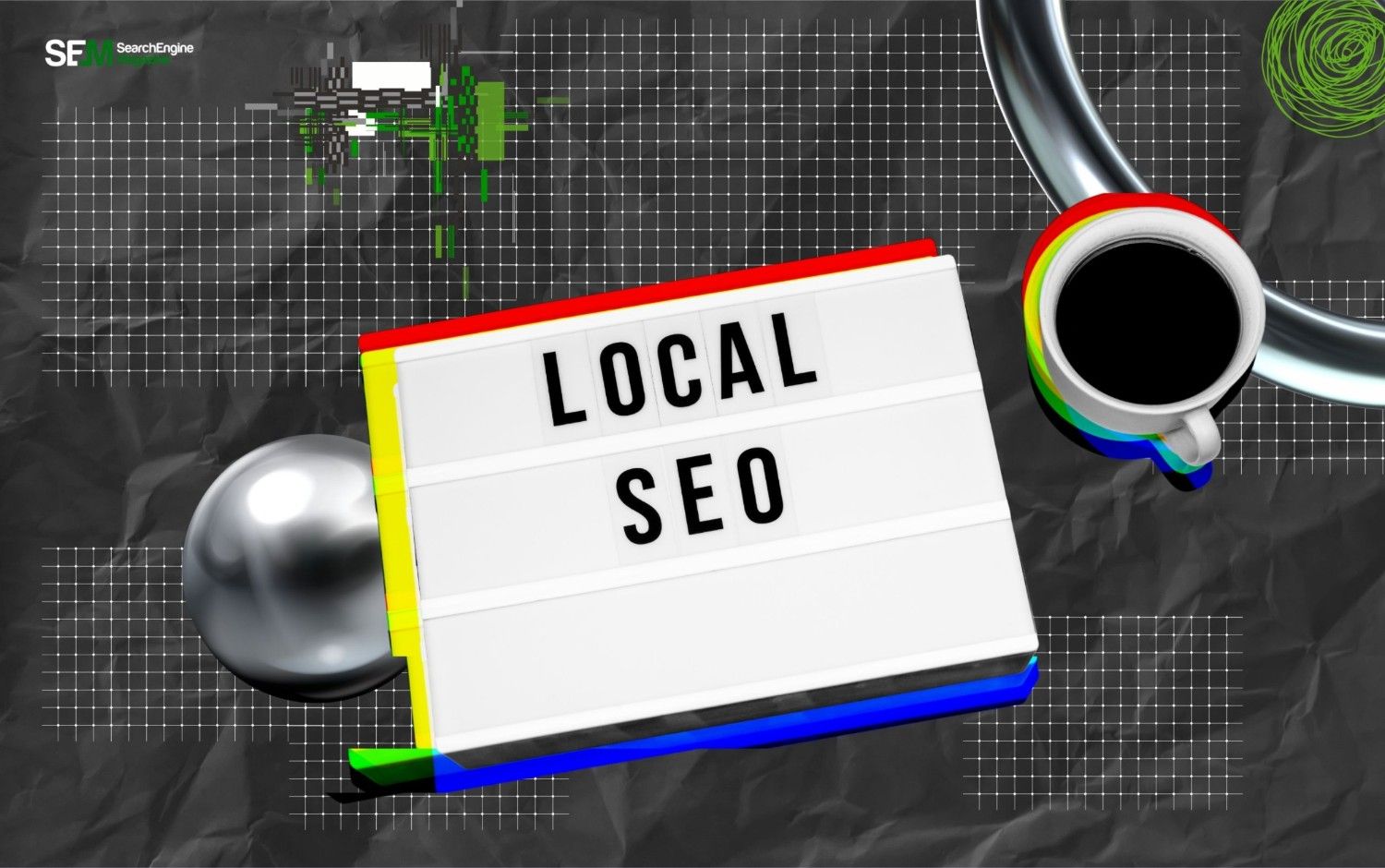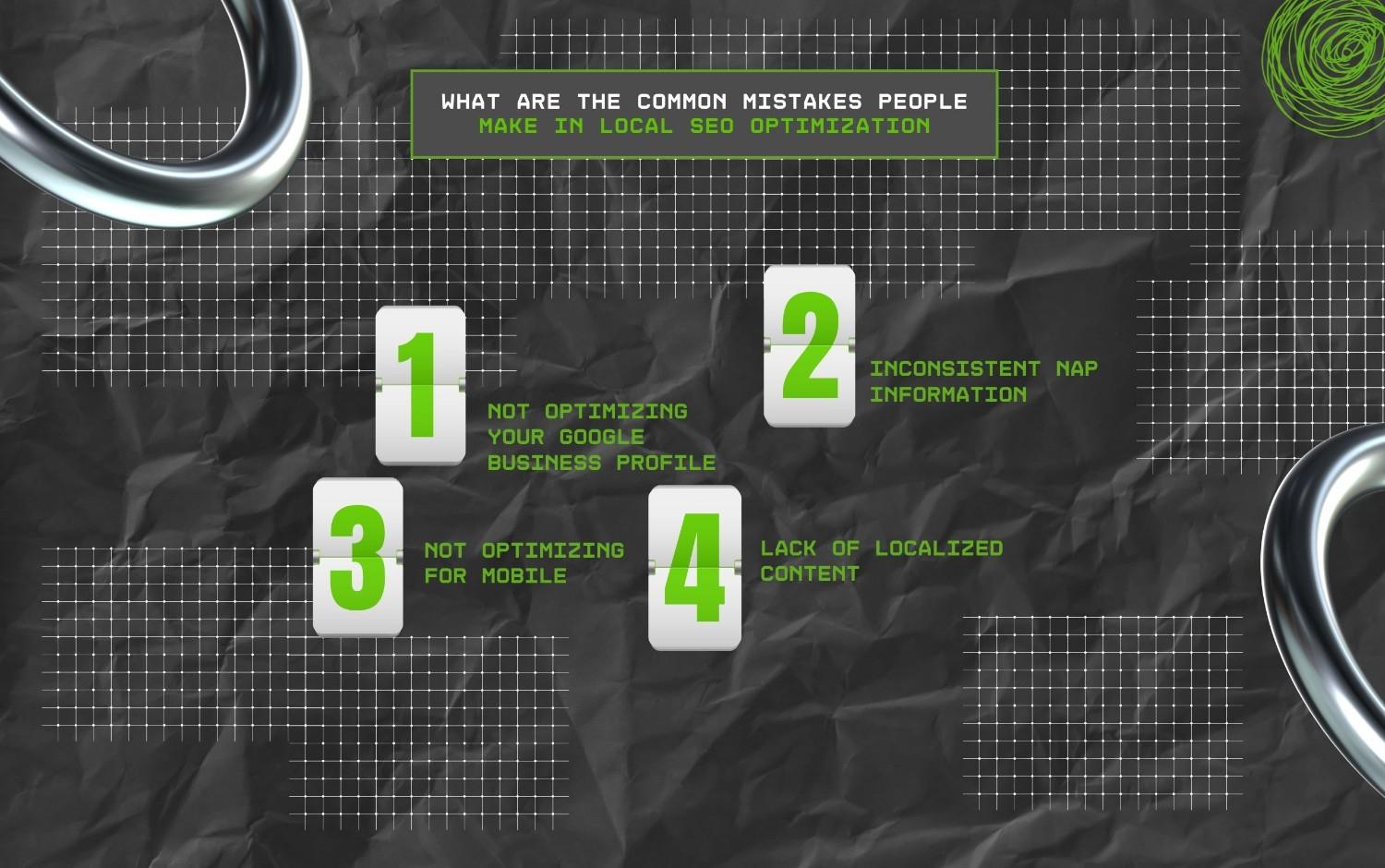How Law Firms In San Francisco Can Benefit from SEO
Feb 28, 2026

Feb 28, 2026

Feb 28, 2026

Feb 27, 2026

Feb 27, 2026

Feb 26, 2026

Feb 26, 2026

Feb 25, 2026

Feb 25, 2026
Sorry, but nothing matched your search "". Please try again with some different keywords.


Do you want your business to be found by more potential customers? If so, you need to focus on improving your local search engine rankings.
Ranking high in local search results can mean a lot of new business for your company – but it takes work. It is this fact that decides a significant portion of your business ability in today’s technological landscape.
This guide will share tips and tricks that will help you get the most from your local SEO efforts. We’ll cover everything from keyword research to link building and much more!
Keep reading to discover the importance and utility of local search engine rankings.

Local search engine rankings are how businesses appear in local search results. Orders can vary depending on the location from which a person is searching and the type of business being searched for.
For example, if you search for “pizza restaurants near me” on Google, the businesses that appear at the top of the results will be those with the highest local search engine rankings for that specific area and keyword phrase.
Local search engine rankings are essential because they can directly impact the amount of business your company receives.
If potential customers in your area cannot find your business when they search for relevant keywords, they will likely choose one of your competitors instead. In other words, having high local search engine rankings is essential if you want to make it easy for potential customers to find and choose your business over others.

TBH, local SEO is not very different from your everyday, standard SEO.
So, when someone searches for anything, Google basically scans through its repository to offer the top results for that specific keyword.
However, here’s what actually makes local SEO somewhat unique:
When the search engine detects that any search has a local angle, it begins using different signals for choosing and ranking results. Also, the search engine displays the results differently.
In this context, let’s look at two things:
When anyone looks for a local service or business, Google typically displays a map accompanied by three listings at the top of the SERPs – this is literally known as the local pack or map pack.
And specifically in this case, it is difficult to rank. Why? Because these business listings dominate online visibility, grabbing a huge margin of clicks, and that too on mobile.
Moreover, there are three factors that play a role in ranking in map packs:
And the primary source for this information? Your business profile on Google. Yep! With your Google Business Profile, you can influence how the business appears in search results, including Google Shopping and Google Maps.
Having said that, it is vital to highlight that the map pack is not the only place for local search rankings.
Right beneath the map pack on SERPs, you will spot all local organic results for the same keyword – the conventional listings in ‘blue ink’ that lead to different websites.
So, while they do appear beneath the map pack, they are still a huge catalyst for organic traffic, clicks, and conversions.
In fact, these results typically capture people looking for a specific service, offering, or just information before selecting any business.
So, for ranking here, you will need the basics of a solid SEO strategy, including:

Many factors affect local search engine rankings, but some are more important than others. Here are a few of the most important things you can do to improve your order:
The bottom line is that improving your local search engine rankings takes time and effort, but it’s well worth it in the end.
So what are you waiting for? Start optimizing today! By following the tips in this guide, you can give your business a competitive edge over other companies in your area.
One of the most important things to improve your local search engine rankings is to conduct keyword research.
This process involves identifying keywords that potential customers are searching for when looking for businesses like yours. Once you know which keywords to target, you can optimize your website and marketing efforts to rank higher for those keywords.
It’s essential to target various keywords, not just the most popular ones. Why? Because the more specific a person’s search is, the more likely they are to find your business.
For example, someone who searches for “pizza restaurants near me” is likely looking for a specific type of restaurant in their area. In contrast, someone who searches for “Italian food recipes” may be interested in all kinds of Italian cuisine.
You can use several different tools to help you conduct keyword research, including Google AdWords Keyword Planner and semrush.com.
These tools allow you to see how many people are searching for a particular keyword each month, as well as the competition for that keyword. This information can help you determine which keywords are worth targeting and how best to go about doing so.
Once you know which keywords to target, optimizing your website for local SEO is essential. Website maintenance is critical.
This includes adding relevant keywords to your website content and including your business name, address, and phone number on all of your web pages. You should also make sure that your website is mobile-friendly, as more and more people are using their smartphones to conduct local searches.
Another thing you can do to improve your website’s ranking is add it to directories like Google My Business. This free service allows businesses to create a listing with their contact information and website URL, and it’s one of the most important factors that Google rankings consider.
Another factor that affects your local search engine rankings is the number of links you have from other local businesses and websites. The more links you have, the higher your website will rank.
You can increase the number of links by participating in local marketing activities like advertising in local newspapers or directories, or sponsoring events in your area.
You can also reach out to other businesses and ask them to link to your website. This process can be tricky, but it can be very effective if done correctly. The best way to start is by finding sites relevant to yours and sending them an email asking if they would be interested in exchanging links.
Next, you need to use local marketing tactics to improve your local search engine rankings. This includes advertising in local newspapers or directories, or sponsoring events in your area.
The best way to engage in this activity is to find out which publications and directories your target customers are reading or using and then advertise in those venues.
You can also reach out to local businesses and ask them to sponsor events that you’re hosting or participating in.
Once you’ve made all of the necessary changes to your website and marketing efforts, it’s essential to monitor your local search engine rankings regularly.
This will allow you to see how well your efforts are paying off and make changes as needed. You can use several tools to track your rankings, including Moz Local and Whitespark.
The bottom line is that improving your local search engine rankings takes time and effort, but it’s well worth it in the end. By following the tips in this guide, you can give your business a competitive edge over other companies in your area. So what are you waiting for? Start optimizing today!
One last thing to remember is that you must ensure your business information is always up to date.
This includes things like your address, phone number, and website URL. You can use a tool like Moz Local to help you keep track of all your business information and ensure that it’s always up to date.
SEO is an ever-changing landscape, so it’s essential to stay on top of the latest trends if you want to maintain high local search engine rankings.
Last but not least, don’t forget to encourage reviews. Google My Business allows customers to leave reviews for businesses, and these reviews can have a significant impact on your ranking.
The more positive reviews you have, the higher you’ll rank. So make sure to let your customers know that you appreciate their feedback.
If you follow these tips, you should see a significant improvement in your local search engine rankings. And if at first, you don’t succeed, keep trying! Remember to be patient; it takes time for changes to take effect.

One of the most common mistakes made when optimizing for local SEO is failing to include your business name, address, and phone number on all of your web pages. This information is known as NAP (name, address, phone), and it’s one of the most important factors that Google considers when ranking websites.
Another common mistake is not regularly monitoring your local search engine rankings. This can make it difficult to see how well your efforts are paying off and make changes as needed.
Finally, some businesses fail to utilize local marketing tactics, such as advertising in local newspapers or directories, or sponsoring events in their area. This can be a missed opportunity to reach out to potential customers and improve your chances of ranking higher in local search engine results.
If you’re looking to improve your local search engine rankings, make sure to avoid these common mistakes!
Knowing such mistakes and avoiding them can help improve a business’s online visibility and bring local traffic. Here are some of the most common errors made in local SEO optimization:
One of the most powerful tools in local SEO is Google My Business. Another wonderful mistake is not claiming your GMB listing or leaving it incomplete.
This mistake results in the potential loss that arises due to incomplete and inconsistent information related to business hours, address, phone number, and website.
The GMB profile needs to be optimized to include a meaningful description, high-quality photos, and up-to-date business details.
NAP stands for Name, Address, and Phone Number. When the NAP details on your website and online directories vary from those in Yelp, Yellow Pages, and local business directories, search engines, as well as customers, get perplexed.
Your NAP information, therefore, should be uniform wherever it appears, because inconsistent details may cause harm to your local search rankings.
Mobile search is very important in today’s world, especially for local searches. A common mistake that can hurt your rankings is failing to optimize your website for mobile devices.
A website that is not mobile-friendly provides a poor user experience, which leads to higher bounce rates and lower rankings in local search results. Ensure that your site is responsive and loads quickly on mobile devices.
Local SEO is all about local relevance. Many businesses will make the mistake of simply posting generic content that does not speak directly to their targeted audience.
Generic content does not address local trends or events, nor does it relate to issues in a local community, which are hard to rank for with local keywords.
Adding location-specific keywords, blogs about local subjects, and content that puts the business in the community can help promote local relevance.
Check out the most commonly asked questions mentioned below:
As per the SE Roundtable, 46% of all search queries come with a local intent. In addition, as per Artios, 54% of mobile users typically look up local business working hours. Similarly, as per Backlinko, 42% of people click on ther results featured in the Google map pack for local queries.
76% of searchers who look for something that is located nearby typically end up visiting the same business within one day. As a result, appearing in the map pack result is great for any business considering a whopping 42% of people click on these results while doing local searches.
Local SEO helps businesses improve their ranking on SERPs, connecting them to customers located nearby. Typically, this involves individuals searching for those specific services at a time when they are ready to make a purchase.
Moreover, local SEO is also a super effective way of reaching high-intent customers, considering 76% of searchers looking up local businesses end up visiting the business on the same day.
Barsha is a seasoned digital marketing writer with a focus on SEO, content marketing, and conversion-driven copy. With 8+ years of experience in crafting high-performing content for startups, agencies, and established brands, Barsha brings strategic insight and storytelling together to drive online growth. When not writing, Barsha spends time obsessing over conspiracy theories, the latest Google algorithm changes, and content trends.
View all Posts
How Law Firms In San Francisco Can Benefit fr...
Feb 28, 2026
The Power Of Internal Linking For Restaurant ...
Feb 28, 2026
Can You Play The Google Zipper Game In 2026?
Feb 27, 2026
How To Make Money On Instagram? The EASIEST C...
Feb 27, 2026
AI Workflow Automation In The Era Of Google U...
Feb 26, 2026

